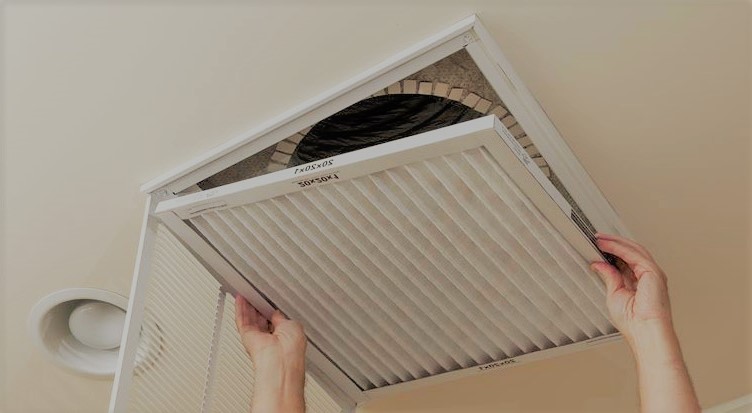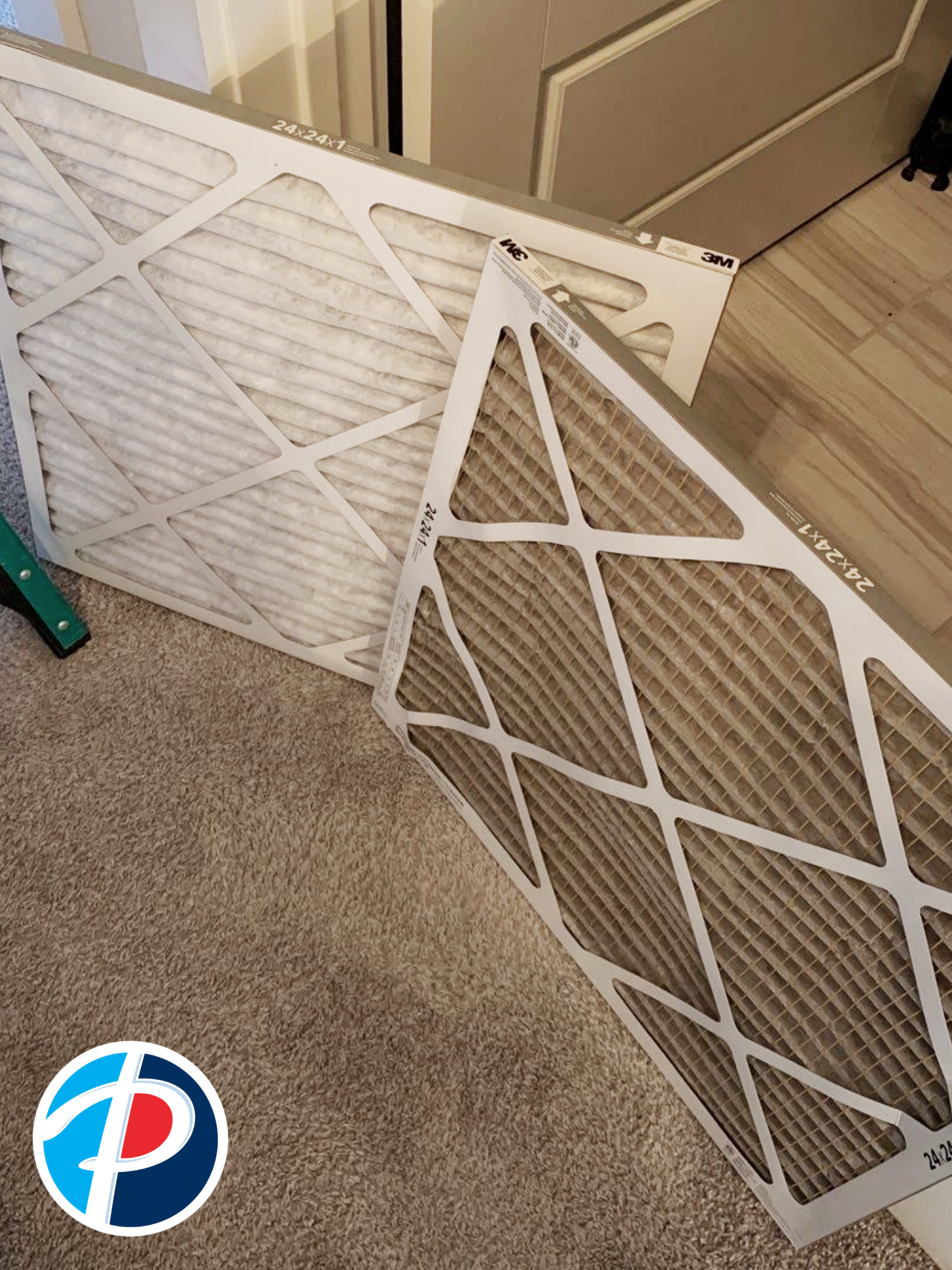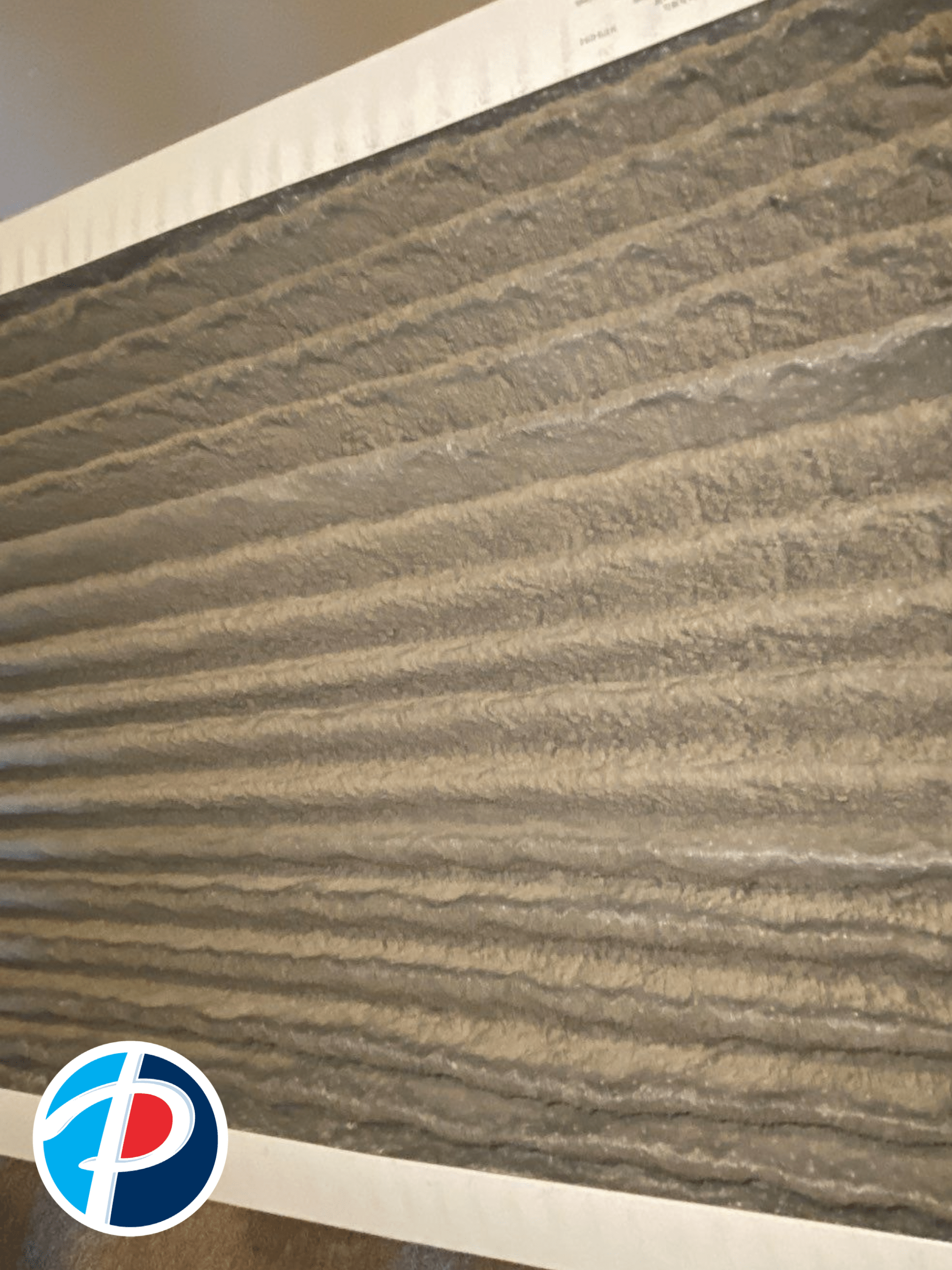Want to save with Paschal? Don’t miss our current offers and specials

Want to save with Paschal? Don’t miss our current offers and specials
Return to Paschal Resource & Education Hub

You can already hear it – your HVAC tech is lecturing you about making sure you change your air filter. How many days was that again? 30? 100? – The general consensus is that you should be replacing the air filter in your home every 3 months, or 90 days. But what happens if you let that time lapse a little bit? Before we talk about WHEN you should change your air filter – let’s begin with the WHY.
Air filters are typically made from spun fiberglass (the same thing that makes up your attic insulation) or pleated paper & framed with cardboard for stability and rigidity. They are inserted into a specific place within your return air duct (usually a large drop down vent in your hallway or other place in your home). These air filters act as barriers to prevent contaminants from entering your HVAC system or circulating within the air. Most filters are designed to block out dust, dirt, pet hair, lint, mold, bacteria, and more. Air filters typically have a MERV (minimum efficiency reporting value) that determines the type and size of pollutants the filter will work against.

As air moves through a building’s HVAC system, air filters trap and collect large and small particles such as dust, allergens and microorganisms. According to the American Society of Heating, Refrigerating and Air-Conditioning Engineers (ASHRAE), this filtration helps provide healthier indoor air quality. A filter’s MERV number indicates how it’s rated to remove these particles. But what is MERV rating, exactly?
An air filter’s minimum efficiency reporting value (MERV) rating measures how effectively the filter stops dust and other contaminants from passing through the filter and into the air stream. Filters with higher MERV ratings trap small particles more effectively than filters with lower MERV ratings. In general, filters with a rating of MERV 16 or below are considered to be HVAC-system-grade filters for residential, commercial and general hospital use. MERV 17 through MERV 20 filters are typically used in surgical operating rooms, clean rooms and other contexts that require absolute cleanliness.
When selecting the right filter for your application, higher is not always better. Using an air filter with a MERV rating higher than what your furnace or air conditioner manufacturer recommends can actually impair its performance. The smaller pores in more highly rated air filters create resistance to air flow, and if the filter is used in an HVAC system that is not designed to handle this resistance, it can lower the system’s efficiency, decrease indoor air quality, and put strain on the system’s fan.

Generally, most air filter manufacturers and HVAC companies recommend changing your air filter every 90 days, or 3 months. That can change based on where your home is located (ex. dusty, dry climates), if you have any pets, and the age of your system and equipment. If you have pets in the home, you should consider changing your filter every 60 days, or 2 months, and for homes with multiple pets or people with allergies or respiratory conditions, we recommend changing your filter every 20-45 days. Vacation homes or vacant homes that don’t see much use can typically wait to change out filters every 9-12 months. The general consensus is, the more you use your home, the more you need to change your air filter.
The role of an air filter is often misunderstood. It is not used to purify the air you breathe, but rather to protect the sensitive components of your HVAC system. It’s important to note that there are high efficiency filters that are designed to filter out small bacterial, mold, and fungal particles, but your standard MERV 8-11 filters will just block out larger particles of dust, dirt & hair.
Air filters typically aren’t designed to filter the air forever. Eventually, they will fill up with dust and dirt. Depending on your system, you should either change your filter or clean it. Paper filters are disposable, with cardboard frames and a paper screen. Sturdier filters are reusable, usually with metal frames, and can be cleaned according to manufacturer instructions.
If you don’t change your AC filter, it will begin to fail. It will no longer be able to filter the air properly, letting dust and contaminants get into the HVAC system. Dust jams the moving parts of an AC such as fan motors and valves. Airflow is restricted which creates a strain on the system. The HVAC system will draw more power to overcome the obstacle. This is how dust makes the unit less energy efficient (at best) and can lead to breakdowns.
The next effects to worry about are the other contaminants that enter a dirty system. The only type of filters that catch allergens and spores are HEPA, or high energy particulate air filters. These are made of a much finer mesh than other filters, and so can screen out tiny particles such as allergens, pollen, dander, and mold spores. They are categorized by MERV ratings 1 through 20. The higher the rating, the more effective it is at catching small particles. HEPA filters can give you better indoor air quality.

When it comes time to purchase new air filters for your HVAC system, you should take a few things into consideration. The most important is to figure out the correct size that you need. This can be done by looking at your existing filter size, or by looking at your equipment manual to determine the correct specs. HVAC filters are often located in a slot next to your furnace or air handler. But some HVAC systems have filters inside the return air ducts scattered in multiple rooms throughout your home.
You should also choose the right filtration level for your home and system. Pleated filters are often better than not pleated, as they allow for more surface area to collect dust, pet hair, and other debris floating through the air.
If you need help choosing the right filter for your system and a professional that can help you change them out, call the pros at Paschal Air, Plumbing & Electric. Schedule Online or call us at 479-751-0195 for all your HVAC, plumbing & electric needs for your home or business.